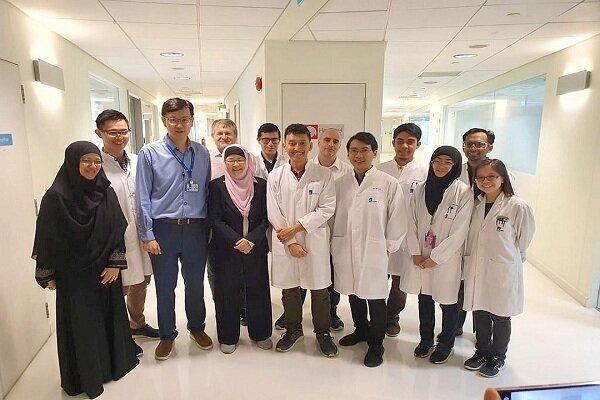Mustafa Prize winner develops novel Covid-19 test
Jackie Ying, head of NanoBio Lab and the 2015 Mustafa (PBUH) Prize laureate For her outstanding contributions to the synthesis of well-designed advanced nanostructured materials and systems, nanostructured biomaterials and miniaturized bio-systems of various interesting applications including the development of “stimuli-responsive polymeric nanoparticles” for diabetic patients has come up with a test that detects Coronavirus in as little as five minutes, according to MSTF media reports.
Ying and her team developed this test in NanoBio Lab in Singapore were like any other country in the world testing is important for the early detection and prompt isolation of Covid-19 patients.
According to The Straits Times, if this test is approved it will become the world's fastest Covid-19 test.
The test uses a swab to collect a patient's secretions, from which the genetic material of the virus is found. Then a portable device is used to examine the sample and release the result in 5 to 10 minutes, using a quick method Ying and her team have named "Cepat," meaning 'fast' in Malay.
"We have done some preliminary clinical validation at the KK Women's and Children's Hospital using real patients' samples, and found the test to be very sensitive and accurate," said Ying.
"Once it is approved, the technology can be used to make such kits for use in hospitals. It will also be adapted for use in general practitioner clinics."
The significance of the test lies in the different methods it uses to detect the virus, because the challenge, as Ying said, is "to develop rapid and accurate diagnostics that can be done without the use of expensive machines."
A standard lab test, known as RT-PCR test, uses reverse transcription (RT) to convert the coronavirus' RNA to DNA and then amplifies the genetic material of the virus using the polymerase chain reaction (PCR) technique.
To show the results, this test takes two to three hours, which is extended if the samples need to be transported. Also, this test needs special machines.
"It is essentially a molecular photocopier. PCR was invented in 1984, and even in today's machines, about 60 percent of the time is spent waiting for the PCR machine to heat up and cool down," said Ying.
The new method, invented by Ying and her team after six weeks of hard work, is similar to the RT-PCR test in that it can "photocopy the genetic material of the virus." However, the difference is that it can "hit a rate of millions of copies within a minute." This is possible only through "a special enzyme developed in Prof Ying's lab."
Ying has also said that "it is very important to note the sensitivity of the tests" when using these fast test kits. These tests may not be able to detect the coronavirus in the patient most of the time or show a "false negative" which occurs when a Covid-19 patient is shown to be not sick and might happen when the "viral load" of the patient is low.
Viral load is the amount of virus the patient is capable of spreading depending on which stage of the disease he or she is in. "People infected with Covid-19 are believed to shed large quantities of the virus early in their illness (high viral load) and less later on."
Therefore, Ying suggested that "it would be best if a fast test can pick up the infection from a patient at various stages of the disease, regardless of whether he has a high or low viral load."
Ying believes an RT-PCR test must be used to detect the disease at the early stages of the disease when the patient is spreading a large amount of virus, and a serological test must be used at the later stages when the patient is releasing little or no virus.
"We can do the science and we can also develop our own tests," said Ying.
MNA/PR
News source: Mehr News ![]()
Related news: Mustafa Prize winner develops novel Covid-19 test
Copyright © 2001-2024 - Sarkhat.com - About Sarkhat - News Archive - جدول لیگ برتر ایران

